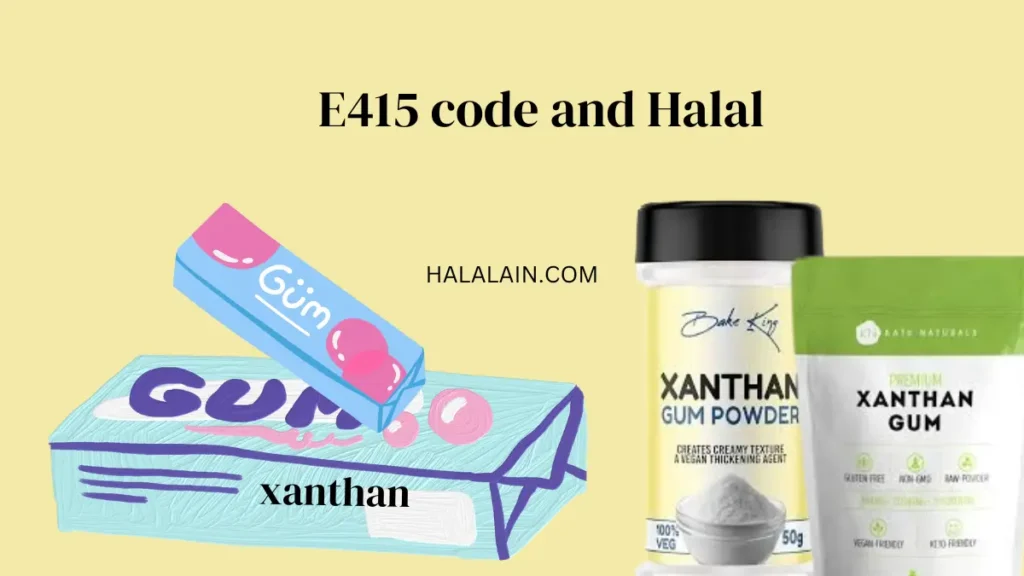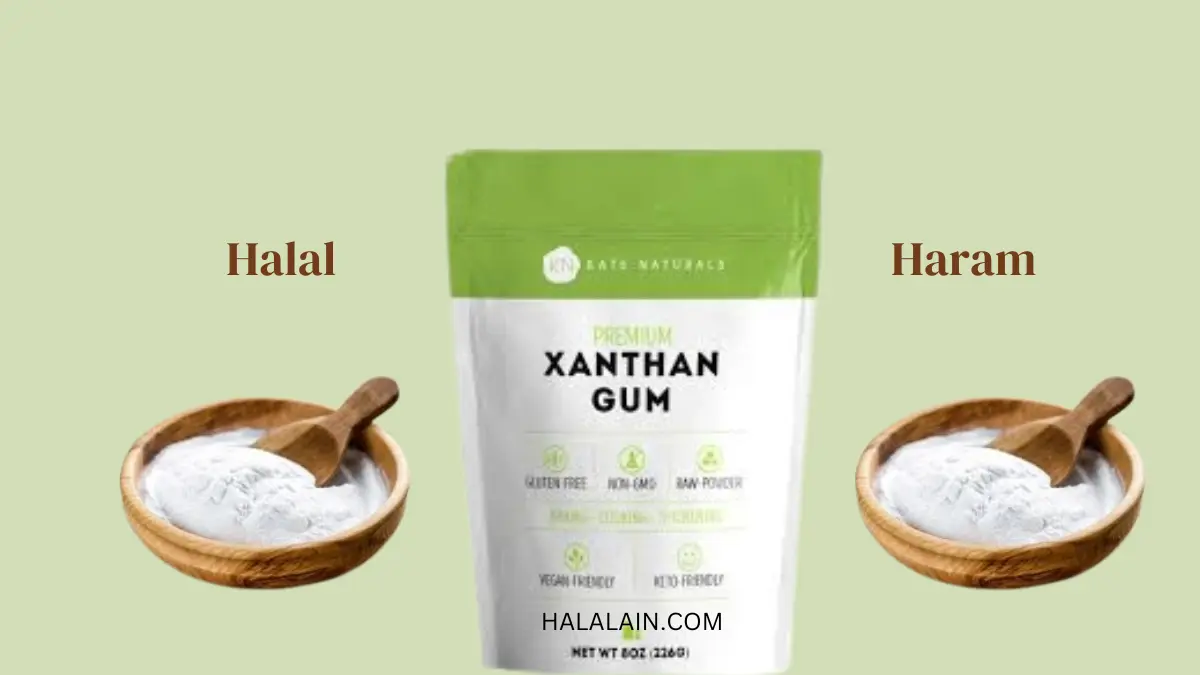You may need to use xanthan gum in the foods you prepare every day, but as a conscious Muslim, you want to prepare foods in a halal way. When you come here, the question arises in your mind whether the xanthan gum that you want to use is halal or not.
We understand your questions and concerns. Because Halal is a blessing, if you follow it, you will get Barakah in your life. And if you indulge in haram then the baraka of your life will be lost. If you pray, the prayer will not be accepted. After all, you will be considered a disobedient servant of Allah.
So you must choose Halal in every action in every moment of your life. To help you in this journey, we will discuss whether xanthan gum is halal in this article. So that we can clear your doubts and cheer you up.
Introduction
Xanthan gum is a polysaccharide, which means it’s a complex carbohydrate made up of sugar molecules. It’s produced through the fermentation of glucose, sucrose, or lactose by the bacterium Xanthomonas campestris. This fermentation process creates a gel-like substance that is then dried and ground into a fine powder.
Xanthan gum is widely used as a food additive, primarily as a thickening agent and stabilizer. It’s commonly found in a variety of food products, including salad dressings, sauces, dairy products, bakery items, and gluten-free products. Its ability to increase viscosity and improve texture makes it valuable in food manufacturing, especially for creating desired consistencies in products.
Is xanthan gum Halal?
Yes, xanthan gum is generally halal. Since this gum is produced from sugar molecules and no haram ingredients are mixed with it, it would naturally be considered a halal gum. Moreover, the manufacturers of this product do not violate the principles that are essential in the production and serving of food according to Islamic food principles.
Moreover, we will analyze the ingredients of xanthan gum in more detail and try to find out the research comments of Muslim scholars to take precautions. So that you can gain knowledge about it more clearly.
E415 code and Halal
E415 refers to the food additive code for xanthan gum. In the European Union’s system for numbering food additives, each approved additive is assigned an “E number” to identify it. E415 specifically designates xanthan gum, which is a polysaccharide produced through the fermentation of carbohydrates by the bacterium Xanthomonas campestris.

Does the E415 code refer to halal xanthan gum?
No, the E415 code does not specify whether xanthan gum is halal. E415 refers to the food additive code for xanthan gum. In the European Union’s system for numbering food additives, each approved additive is assigned an “E number” to identify it.
E415 specifically designates xanthan gum, which is a polysaccharide produced through the fermentation of carbohydrates by the bacterium Xanthomonas campestris.
However, generally, E415 ensures that no unfair practices have been used in the production and serving of xanthan gum. This contributes to making this product halal. And fundamentally whether xanthan gum is halal depends on its production. Xanthan gum is produced by microbial fermentation of carbohydrates, which are generally halal in Islamic food law.
What activities can Muslims use xanthan gum?
Muslims can generally use products containing xanthan gum for various purposes, including food and non-food applications. Xanthan gum itself is derived from microbial fermentation of carbohydrates and does not inherently contain any ingredients that are prohibited in Islam. As such, it is halal for Muslims to consume and use.
- Cooking and Baking: Xanthan gum is commonly used as a thickening agent and stabilizer in various recipes, such as sauces, soups, gravies, salad dressings, and baked goods. It helps improve texture, consistency, and shelf life in both homemade and commercially prepared foods.
- Gluten-Free Cooking: Xanthan gum is often used in gluten-free cooking and baking as a substitute for gluten, helping to bind ingredients together and provide elasticity to doughs and batters.
- Food Preservation: Xanthan gum can be used in food preservation to help stabilize and maintain the texture of canned or jarred foods, such as fruit fillings, jams, and spreads.
- Cosmetic Products: Xanthan gum is used in many cosmetic and personal care products, including creams, lotions, shampoos, and toothpaste, for its thickening and stabilizing properties.
- Pharmaceutical Products: Xanthan gum is used in pharmaceutical formulations as a suspending agent, binder, and stabilizer in various medications, including tablets, capsules, and oral liquids.
- Industrial Applications: Xanthan gum is utilized in various industrial applications, such as in the production of paints, adhesives, lubricants, and drilling fluids, for its thickening, suspending, and emulsifying properties.
How to know more details about xanthan gum?
To know more details about whether xanthan gum is halal, you can follow these steps:
- Check Product Labels: Look for products containing xanthan gum that are labelled as halal. Some manufacturers may explicitly state on their product packaging whether the product is halal-certified.
- Research Halal Certification: Investigate whether the manufacturer of the product has obtained halal certification from a reputable halal-certifying organization. This information may be available on the product packaging, the manufacturer’s website, or through other sources.
- Contact the Manufacturer: If you’re unable to find information about the halal status of a product containing xanthan gum, consider reaching out to the manufacturer directly. You can inquire about the halal certification status of the product and ask for details about the sourcing and production processes.
- Consult Halal Certification Organizations: Some halal-certifying organizations maintain lists of halal-certified products and may be able to provide information about whether specific products containing xanthan gum are halal-certified.
- Community Resources: Seek guidance from your local Muslim community, halal authorities, or religious leaders who may have knowledge or recommendations regarding halal products, including those containing xanthan gum.

